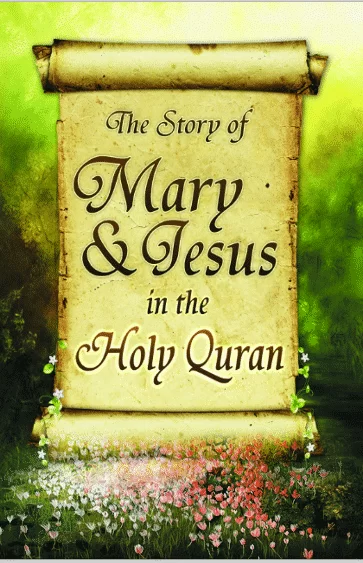Prophet Abraham (peace be upon him) is a pivotal figure in history, revered and honored by Islam, Judaism, and Christianity. These three major religions are often referred to as Abrahamic religions, but did Abraham practice all three, or just one? What was Abraham’s true religion, creed, and message?
In this article, we will explore Prophet Abraham’s profound influence on Islamic belief and clarify his pivotal role in the monotheistic tradition. Indeed, he was a Muslim who believed in the Islamic creed and served as a role model for it.
What was Prophet Abraham’s Religion?
Prophet Abraham’s religion is Islam. He was a Muslim, wholly devoted to God. This religion, characterized by submission to Allah and the worship of Him alone, has been the foundation of human faith since the beginning. While the legal rulings and specific teachings may have differed across Prophets, the core belief in one God and the act of submitting to Him have remained unchanged. The Quran states:
- “Abraham was neither a Jew nor a Christian; he was a Muslim, wholly devoted to God and was not a polytheist.” (Quran, 3: 67)
Understanding Islam and the Islamic Creed
To fully grasp Prophet Abraham’s faith, it’s crucial to understand what it means to be a “Muslim” and the essence of the Islamic creed. Islam is an Arabic word meaning “submission,” and a Muslim is one who submits to the Creator of the Heavens and Earth, Allah, believing in Him as the only God and the only One worthy of worship.
Islam, as an act, a creed, and a religion, predates the teachings of Prophet Muhammad (peace be upon him) from 1400 years ago. It is the belief in the One and only God, the Creator of all, submitting to Him, obeying His commands, and worshiping only Him.
Why Was Prophet Abraham Called The Father Of The Prophets?
Prophet Abraham (PBUH) is referred to as the “Father of the Prophets” because all the prophets who came after him, from his descendants, trace their lineage back to him. Nearly all the prophets mentioned in the Quran are from his progeny, except for eight. This lineage establishes him as the patriarch from whom a long line of prophets descended, making him central to the prophetic tradition and earning him the title of “Father of the Prophets.”
To illustrate, all the Prophets (PBUT) carried the same message of monotheism, i.e., Islam. Although the specific teachings, commands, and laws varied from one Prophet to another, the fundamental creed of monotheism remained the consistent message they all conveyed. Still, the exited versions of their divine messages are distorted and outdated. Thus, the revelation of the last Prophet Muhammad (PBUH) serves as the supreme authority on them, and the followers of those Prophets (PBUT) must follow the last divine message saved by Almighty God.
Prophet Abraham: A Role Model for Monotheism
Prophet Abraham, a man from ancient Iraq, is a profound example of unwavering faith and pure monotheism. From a young age, he exhibited a thoughtful and inquisitive mind, questioning the religious practices of his time. This is illustrated in the following situations:
1. The Idolatry Around Abraham
In his society, people worshiped various deities, ranging from idols made of stone and wood to celestial bodies like the stars, the Sun, and the Moon. Some even worshiped a king who claimed divinity. Despite these widespread beliefs, young Abraham felt that something was amiss.
2. Abraham’s Search for the True God
Prophet Abraham recognized that all these objects of worship were created entities, whether handmade idols, stars that are part of the universe, or a human king. He realized that true worship should be directed towards the Creator of everything—the one who made the sky and its stars, the Sun and the Moon, and all humans, including kings. Thus, Abraham embarked on a quest to seek “The God,” the true Creator who deserved worship and obedience.
Read more:
- The Name Allah – Meaning, Root, Significance and More!
- Does Allah Forgive All Sins? – I Have Sinned!
- Does Allah Love Us? – How to prove That?!
3. Challenging False Beliefs
Prophet Abraham boldly challenged those around him, including his own father, who was a renowned idol-maker, and others who worshiped stars, the Sun, or the Moon. He even confronted the king who claimed to possess divine powers, asserting that it is God who causes the Sun to rise from the east and challenging the king to make it rise from the west.
4. Steadfastness in Faith
Prophet Abraham remained steadfast in his beliefs despite facing persecution from the masses and threats from the tyrant king. He did not fear these adversaries, knowing that his fate lay in the hands of the Creator. Abraham’s survival and success were rewards for his pure belief and rejection of any partners with God.
Overall, Prophet Abraham’s journey from questioning the idolatry around him to embracing and advocating for pure monotheism serves as a timeless model of faith and devotion. Despite societal pressures and personal dangers, he remained unwavering in his belief in the One True God, the Creator of all. His life exemplifies the essence of being a Muslim: absolute submission, trust, and obedience to Allah alone.
How Was Abraham Described in the Quran?
Prophet Abraham is a significant figure in Islam, known for his unwavering monotheism and his role as a model for all believers. The Quran describes him in various ways, highlighting his purity, obedience, and devotion to Allah.
1. Abraham’s Purity and Obedience
Prophet Abraham was free from idolatry and its people. His heart was pure, and he was quick to obey God’s commands, regardless of their difficulty. He is a role model for all humans, setting goals for everyone to follow. The Quran states:
“And who would be averse to the religion of Abraham except one who makes a fool of himself. And We had chosen him in this world, and indeed he, in the Hereafter, will be among the righteous.” [Quran: 2/130]
Here, Prophet Abraham’s special status, both in this world and the Hereafter, highlights his righteousness and the importance of following his example.
2. Prophet Abraham was neither a Christian nor a Jew
Prophet Abraham was neither a Christian nor a Jew. If Abraham were alive, he would have rejected any teachings that equate man with God and would have remained true to God’s commands, since these religions are distorted. The Quran states:
“Abraham was neither a Jew nor a Christian, but he was one inclining toward truth, a Muslim [submitting to Allah]. And he was not of the polytheists.” [Quran: 3/67]
In another verse, the Quran refutes this misconception saying:
“O People of the Book! Why do you argue about Abraham, while the Torah and the Gospel were not revealed until long after him?” [Quran: 3:65]
This verse clarifies Prophet Abraham’s true faith as a Muslim, one who submits entirely to Allah, and distinguishes him from polytheism.
Read:
Is Islam The Message of All Prophets?
Which Religion Came First In The World? Paganism, Christianity, Judaism, Hinduism, or Islam?
3. Abraham’s Example of Disassociation from Idolatry
Prophet Abraham and his followers dissociated themselves from idolatry, rejecting all false deities. The Quran quoted them as saying:
“You already have an excellent example in Abraham and those with him, when they said to their people, ‘We totally dissociate ourselves from you and ˹shun˺ whatever ˹idols˺ you worship besides Allah.” [Quran: 60:4]
Thus, the verse shows Abraham’s firm stance against idolatry and his commitment to pure monotheism, serving as an excellent example for all believers.
Read also:
Idolatry in Islam (Polytheism and Shrik Explained!)
4. Abraham as a Model of Excellence
Abraham is described as a model of excellence, devoted to Allah and perfectly upright, without any association with polytheism. Almighty God states in the Quran:
“Indeed, Abraham was a model of excellence: devoted to Allah, ˹perfectly˺ upright—not a polytheist.” [Quran: 16:120]
This verse highlights Abraham’s exemplary character, his dedication to Allah, and his uprightness, making him a perfect model for all believers to emulate.
To sum up, the Quran paints a comprehensive picture of Prophet Abraham as a pure, obedient, and devoted monotheist. His life and actions provide a clear model for all Muslims to follow, emphasizing the importance of submission to Allah and rejection of idolatry. Abraham’s unwavering faith and dedication set the standard for believers, reinforcing the essence of true Islamic faith.
For more about the Quran, read:
- Who Wrote the Quran? – Real Examination To The Author of the Qur’an
- Why is The Quran The Greatest Miracle?
- Scientific Miracles In Quran – Most Authenticated With References
Conclusion
To conclude, Prophet Abraham stands as a quintessential role model for Muslims, exemplifying unwavering faith, pure monotheism, and steadfast obedience to Allah. His life and actions, as depicted in the Quran, serve as a powerful guide for all believers.
By following his example, Muslims are encouraged to pursue the truth, reject idolatry, and fully submit to the One True God. Abraham’s legacy as a paragon of devotion and righteousness continues to inspire and direct believers toward a life of faith and obedience to Allah.
Be like Abraham, be a Muslim. Our team is here to answer all your questions about Islam and becoming a Muslim. Don’t hesitate to reach out to us today!
















